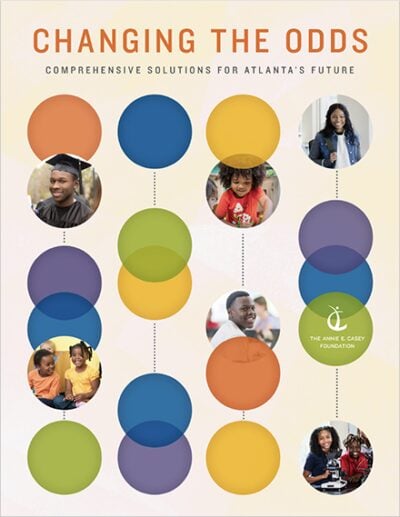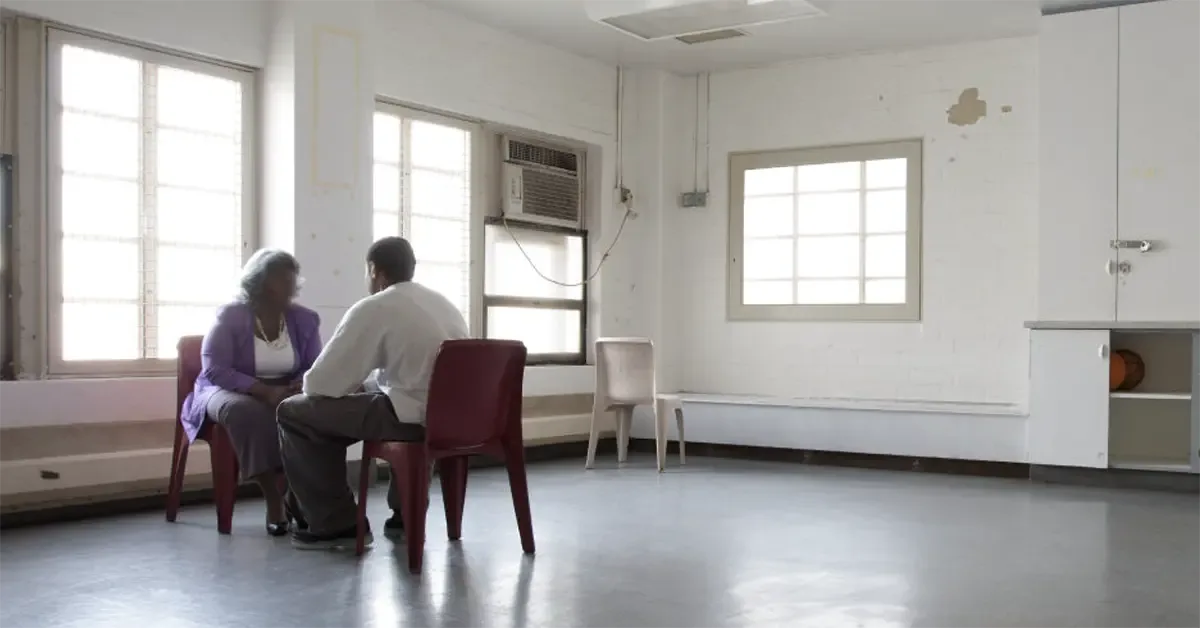About Changing the Odds
Since the first Changing the Odds in 2015, the city of Atlanta has made significant progress in addressing barriers to opportunity faced by many of its residents of color. Despite gains, progress remains uneven and disparate among racial groups. Black Atlantans continue to face disproportionate challenges in their neighborhoods, schools and access to economic opportunity, impeding their ability to thrive in a rapidly growing city.
Atlanta Is a Changing City With An Enduring Divide
Since 2015, Atlanta’s demographics have shifted. As metropolitan Atlanta has become increasingly diverse in recent years, the city remains largely Black and white, though Black residents are now a plurality rather than a majority as the white population has grown. Despite these changes, data continue to show a clear divide in access to opportunity between wealthier, majority-white communities on the city’s north side and lower-income communities to the south and west, where the majority of residents are Black.
Addressing Educational Achievement Gaps
While on the surface, graduation rates for Black and Latino students look promising, further inspection of third grade reading and eighth grade math outcomes point to a downward trend for the city’s younger students. Reading proficiently by the end of third grade is a major predictor of whether a student will graduate from high school. While reading and math scores fluctuated during the pandemic and have since gained some ground, the data show wide racial disparities in Atlanta. Proficiency rates for both third grade reading and eighth grade math among Black students plunged by 12 and 16 percentage points, respectively, in the 2020–21 school year. In the 2022–23 school year, math and reading scores for white students exceeded those of Black students by nearly 60 percentage points in both subjects.
Closing Atlanta's Persistent Wealth and Opportunity Gaps
While median incomes for Black households increased by more than $6,000 in inflation-adjusted dollars between 2013 and 2021, the difference in median earnings between Black ($38,854) and white ($114,195) households increased by $3,529 to reach a difference of $75,341 in 2021. Lower earnings translate into lower rates of savings and higher rates of delinquent debt (60 days or more past due). Financial experts recommend that households have savings and accessible assets sufficient to cover expenses for at least three months to weather a financial crisis. In 2020, more than half of Black Atlantans lacked this basic financial cushion, compared to 14% of white residents. In 2022, communities of color in Fulton County had nearly three times the level of delinquent debt as white communities, with the largest portion from medical expenses (19%) followed by student loans (11%).
Solutions Helping Change the Odds in Atlanta
Interrupting Violence and Creating Healthy Communities
In South Atlanta, an effort to address gun violence has mobilized local communities to implement a public health approach to safety. Discussions on rising gun violence in the Mechanicsville and Pittsburgh neighborhoods led to a partnership with CHRIS 180, an organization specializing in mental health and community services that employs “credible messengers” from the community to foster trust, collaboration and ways for residents to heal from trauma. These residents, who often have personal experience with violence, serve as violence interrupters and outreach workers, creating job opportunities while enhancing community well-being.
The Changing the Odds Network
Since 2014, the Changing the Odds Network, has focused on helping Atlanta children, families and communities by using data to understand problems identified in this report series and find solutions. The group of local thought and practice leaders has grown to 61 organizations. The network’s initial approach was for individual teams to address specific issues, but members soon realized that the root causes of these barriers to opportunity were deeply interwoven and required a more comprehensive approach.
In This Publication You'll Learn
- Atlanta’s data landscape — following the COVID-19 pandemic and racial reckoning — in three key areas for children’s healthy development: the community where they grow up; school experiences; and family access to economic opportunities.
- Enduring and growing racial disparities since the 2015 and 2019 Changing the Odds reports.
- Policies and practices that are leading to progress and results.
- Recommendations to address racial disparities and support thriving communities, educational achievement and economic opportunity for all Atlantans.






